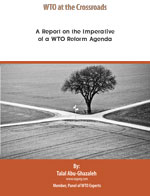I had written about compulsory licensing, TRIPS and the exercise of domestic policy space, albeit in a judicial context, here.
An interesting piece titled "Compulsory Licences for pharmaceuticals: An inconvenient truth?" by Sivaramjani Thambisetty on the recent grant of compulsory licenses in India highlights the various principles involved. As summarized by the author, the case brings to the fore these issues:
"Irrespective of the outcome of this case on appeal, the decision of the IPAB plays a crucial role in building up alternative and legitimate legal narratives around TRIPS and the ability to meet the public health needs of populations in all parts of the world. Despite the explicit legal grounds to grant compulsory licenses, they have been used relatively rarely in developing countries. There are many poorly reasoned and inadequately articulated fears that have prevented their wider use: fears that a CL will be seen as protectionist and incompatible with the TRIPS agreement; fear that it will chill foreign direct investment; or fear that a CL will draw the kind of political pressure and sanctions that were common prior to the TRIPs agreement. These fears appear in many cases to trump the reasonable legal conditions that have to be met in all cases where CLs are granted as well as widespread precedents from developed countries where CLs are used to tackle anti-competitive measures. (For instance, see here and here. )"
Issues of the violation of TRIPS, defining public interest, exercise of domestic policy space, developing country needs in the context of multilateral rules as well as public health concerns are raised here. Definitely more food for thought.
A wonderful read.


